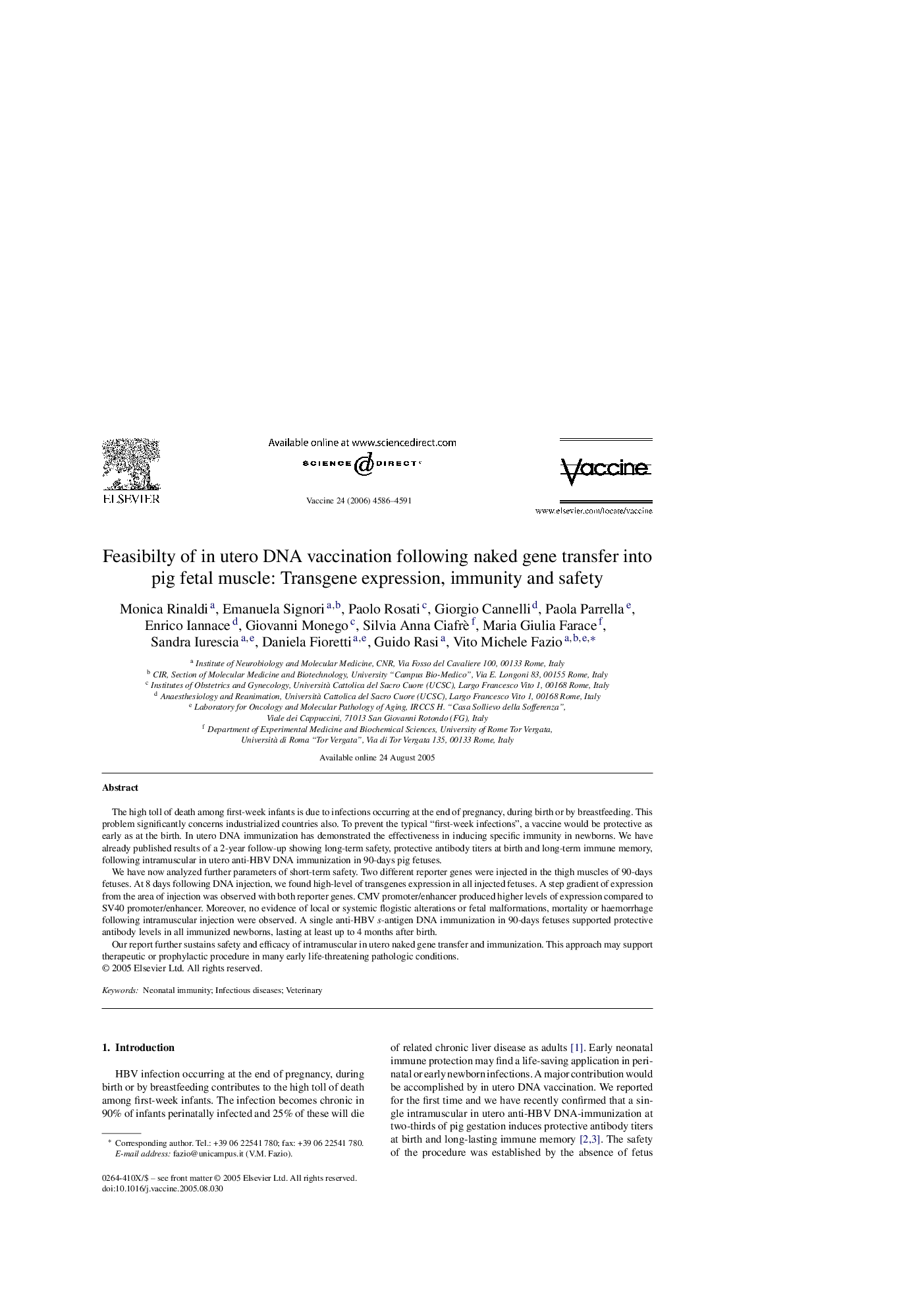| Article ID | Journal | Published Year | Pages | File Type |
|---|---|---|---|---|
| 2409409 | Vaccine | 2006 | 6 Pages |
The high toll of death among first-week infants is due to infections occurring at the end of pregnancy, during birth or by breastfeeding. This problem significantly concerns industrialized countries also. To prevent the typical “first-week infections”, a vaccine would be protective as early as at the birth. In utero DNA immunization has demonstrated the effectiveness in inducing specific immunity in newborns. We have already published results of a 2-year follow-up showing long-term safety, protective antibody titers at birth and long-term immune memory, following intramuscular in utero anti-HBV DNA immunization in 90-days pig fetuses.We have now analyzed further parameters of short-term safety. Two different reporter genes were injected in the thigh muscles of 90-days fetuses. At 8 days following DNA injection, we found high-level of transgenes expression in all injected fetuses. A step gradient of expression from the area of injection was observed with both reporter genes. CMV promoter/enhancer produced higher levels of expression compared to SV40 promoter/enhancer. Moreover, no evidence of local or systemic flogistic alterations or fetal malformations, mortality or haemorrhage following intramuscular injection were observed. A single anti-HBV s-antigen DNA immunization in 90-days fetuses supported protective antibody levels in all immunized newborns, lasting at least up to 4 months after birth.Our report further sustains safety and efficacy of intramuscular in utero naked gene transfer and immunization. This approach may support therapeutic or prophylactic procedure in many early life-threatening pathologic conditions.
